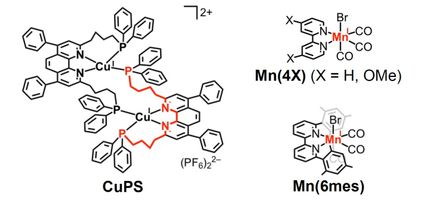UK budget heralds price cuts on branded pharmaceuticals
The Pharmaceutical Price Regulation Scheme (PPRS) will cut branded drug sales by £550m ($800m) during 2010–11
As part of the UK government’s drive to save £2.3 billion ($3.4 billion) in the National Health Service (NHS) during 2010–11, £550m ($800m) will be cut from the prices of branded drugs as a result of the revised Pharmaceutical Price Regulation Scheme (PPRS) included in Alistair Darling’s 2009 budget delivered on Wednesday. Consequently, with the volume of branded drugs having remained flat over the last four years, the total sales of the UK branded pharmaceutical industry are forecast to decline from 2009 onwards.
Piling on the problems
Due to the global economic downturn, branded Pharma sales are already suffering in countries such as the US, which lack a nationalized healthcare system. The rising number of unemployed and therefore uninsured patients are switching to cheaper generic drug alternatives, the result of which will be a knock-on effect on branded prescription drug sales, which are now forecast to decline by one to two percent in 2009.This is not the case however in the UK, where patient out-of-pocket costs are capped at £7.20 ($10) for prescriptions of either generic or branded drugs (where no generic is available). Moreover, in many cases the prescription charge is waived due to the financial status of the patient. Nevertheless, the global economic downturn has exacerbated the challenges that branded Pharma face in the UK market.
The UK pharmaceutical market is already highly genericized, with generic drugs responsible for 65% of drug volume and 25% of sales, with uptake set to rise as many big name branded products lose patent protection in the UK within the next decade. More than 87% of prescriptions are written generically, with the remaining 13% likely attributable to branded biologic drugs which are yet to face non-branded ‘biosimilar’ competition. Furthermore, generic substitution by pharmacists will become mandatory from 2010, unless the physician has ticked a ‘do not substitute’ box.
The latest initiative undertaken to reduce the NHS drug bill is to cut spending on branded pharmaceuticals by £550m ($800m) during 2010–11, as part of a wider scheme to save the NHS £2.3 billion ($3.4 billion) over the same period, as announced in the UK’s 2009 budget.
The savings will be derived from the newly revised Pharmaceutical Price Regulation Scheme (PPRS), which came into effect on February 1, 2009 with a 3.9% reduction of prescription drug prices. A further 1.9% price cut from February 1, 2010 will provide additional savings to the NHS, which could in fact exceed the £550m ($800m) target announced by the government.
Some good news…
However, the branded industry has been compensated by price increases of 0.1% in January 2011, 0.2% in January 2012, and 0.2% in January 2013. Plus, a flexible pricing scheme aimed at rewarding innovation will be introduced in February 2009 to offset the impact of the PPRS price cuts and growing generic incentivization initiatives. The government has also announced a new £750m ($1.1 billion) Strategic Investment Fund to support advanced industrial projects of strategic importance, which can potentially be accessed by struggling UK biotechnology companies. However, with £250m ($363m) earmarked for low-carbon investment, the £500m ($727m) to be allocated across the rest of UK R&D is too little, too late for small biotechs, many of which have already gone to the wall. More will undoubtedly follow before the year’s end.
On top of the PPRS price cuts and growing genericization of small molecule drugs, branded Pharma now faces a new threat from biosimilars (generic versions of biologic drugs), which are expected to enter the UK market imminently providing a lower cost alternative to expensive branded biologics, Datamonitor pharmaceutical strategy senior analyst Mr. Sinclair says. “While uptake may initially be slow, it will inevitably grow, driven by the need to cut healthcare costs coupled with growing physician and patient confidence in the drugs over time.
“Consequently, with the volume of branded drugs having remained flat over the last four years, total sales of the UK branded pharmaceutical industry are forecast to decline from 2009 onwards due to the multitude of negative factors facing the industry,” he says.
Most read news
Organizations
Other news from the department business & finance

Get the chemical industry in your inbox
By submitting this form you agree that LUMITOS AG will send you the newsletter(s) selected above by email. Your data will not be passed on to third parties. Your data will be stored and processed in accordance with our data protection regulations. LUMITOS may contact you by email for the purpose of advertising or market and opinion surveys. You can revoke your consent at any time without giving reasons to LUMITOS AG, Ernst-Augustin-Str. 2, 12489 Berlin, Germany or by e-mail at revoke@lumitos.com with effect for the future. In addition, each email contains a link to unsubscribe from the corresponding newsletter.

























































